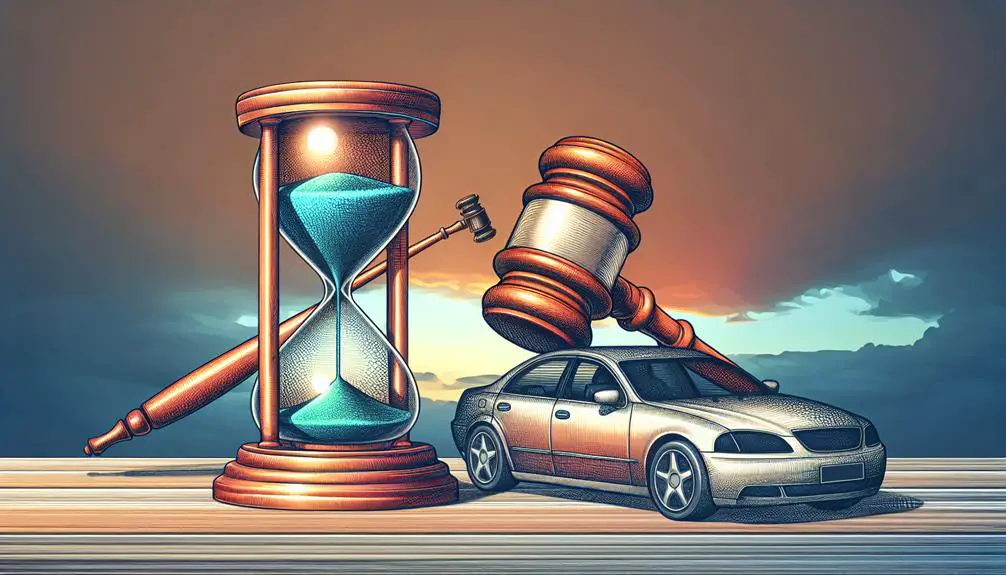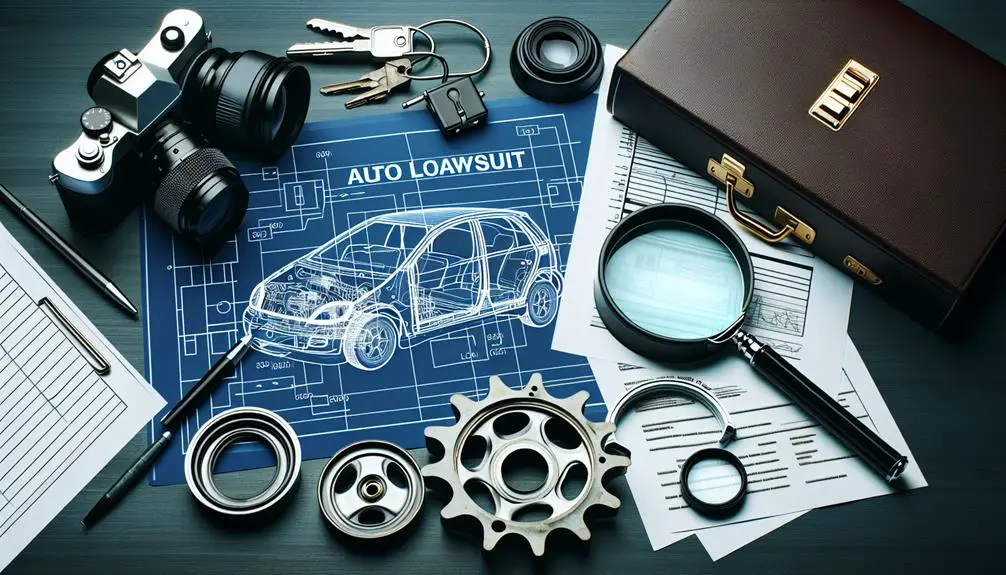Suing Hyundai successfully hinges on several factors:
- Adhering to the statute of limitations
- Warranty coverage
- Product liability laws
- Eligibility for class action lawsuits
- The robustness of documentation and evidence
These elements play a crucial role in determining the success of legal action against Hyundai.
Statute of Limitations

The statute of limitations is a deadline to file a lawsuit, and it changes based on where you live and what your lawsuit is about. If you have a problem with your Hyundai, you need to know this deadline because it affects if you can sue. The deadline for suing over a defective Hyundai might be different from suing for injuries from a Hyundai accident. You must find out the deadline in your area and file your lawsuit before time runs out. If you miss this deadline, you can't sue, no matter how good your case is.
Talking to Hyundai or dealing with insurance doesn't stop the deadline clock. Some people think these actions give them more time, but they don't. It's important to watch the time and talk to a lawyer early to protect your rights to sue.
Warranty Coverage
Know your Hyundai warranty well. It matters for lawsuits. Hyundai offers different warranties like basic, powertrain, and for hybrids or electric parts. Each warranty has its own rules and time limits.
If you think about suing due to a defect, check your warranty first. Hyundai must fix parts under warranty. If they don't or the issue isn't covered, you might've a case.
Warranties don't cover everything. They usually exclude normal wear, accident damage, or issues from unauthorized fixes. Knowing this helps decide if a lawsuit is worth it or if you should just use your warranty.
Product Liability Laws

When looking into warranty coverage, it's also important to understand how product liability laws might help you take legal action against Hyundai for defects. These laws protect consumers by making sure companies like Hyundai are responsible for any damage caused by their products. Here's how these laws could help your case:
- Manufacturing Defects: If your Hyundai had problems made during its production, you could have a strong case.
- Design Defects: If the vehicle's design is unsafe, this could be the reason for your lawsuit.
- Failure to Warn: It's Hyundai's job to tell you about any risks with their vehicles.
- Breach of Warranty: This is related to your warranty coverage but is considered under product liability if the defect was there even with a warranty.
- Strict Liability: Sometimes, you don't need to prove negligence. If the product was dangerous, Hyundai might be responsible.
Knowing these points is important for deciding what to do next. If a defect has affected you, understanding where your situation falls in these categories can help you in seeking justice.
Class Action Eligibility
To join a Hyundai class action lawsuit, ensure your issue matches the lawsuit's focus on a specific model defect. You must also join within the allowed time frame.
While the number of participants doesn't directly impact your eligibility, it's necessary for the lawsuit to proceed.
Knowing these factors can help you join a lawsuit against Hyundai for compensation.
Documentation and Evidence

To sue Hyundai successfully, you must gather strong documentation and evidence of the defect. This evidence is critical for proving the defect's existence and its effects on you. Without it, winning the lawsuit is unlikely.
Focus on collecting the following:
- Service records and repair bills: These show your car's issue history and repair attempts.
- Correspondence with Hyundai: Emails, letters, or call records can prove your efforts to resolve the issue with Hyundai's customer service.
- Expert assessments: Independent opinions from mechanics or automobile experts can offer an unbiased view of the defect.
- Photos and videos: Visual proof of the defect can clearly show the problem in court.
- Recall notices or safety warnings: Documents related to broader recognized problems can strengthen your case.
Gathering this evidence is crucial for a strong lawsuit against Hyundai. Be thorough and keep everything related to the defect organized for easy access during legal proceedings.
Conclusion
To finish up, it's really important to remember two things if you're thinking about suing Hyundai.
First, make sure you start your lawsuit before the time limit, known as the statute of limitations, runs out.
Second, check that your Hyundai is still under warranty because it can affect your case. It's also good to know about the laws on product safety and if you can join a group lawsuit, which might help your situation.
Always keep your papers and proof well-organized. Knowing all this and being ready will help you a lot in dealing with the court stuff and might increase your chances of winning against Hyundai.